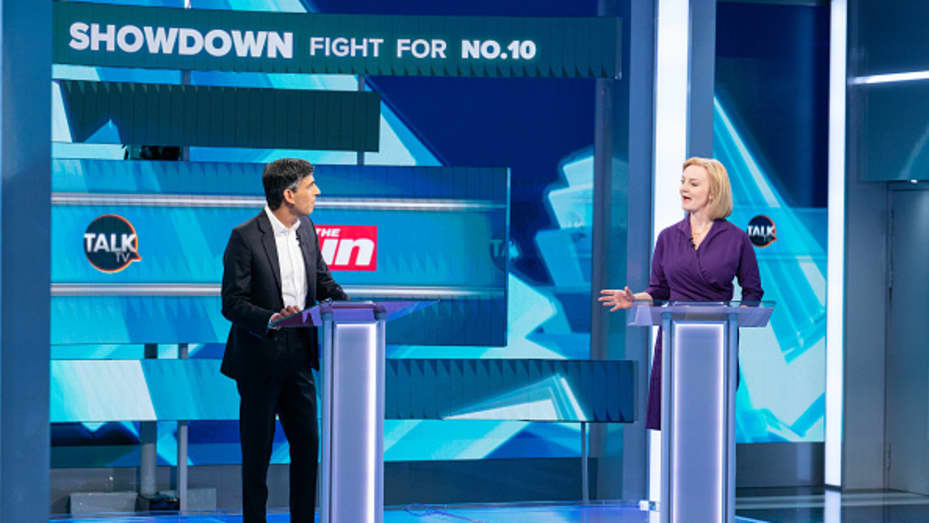
Inflation in the UK rose to a 40-year high in July as food and energy prices continued to intensify the country's historic squeeze on households.
According to estimates published by the Office for National Statistics on Wednesday, the consumer price index increased by 10.1% in the year to June.
This was up from the 0.8% incline in June but still shy of the 2.5% month-on-month jump in April.
Between June and July, rising food prices made the biggest upward contribution to annual inflation rates.
According to the ONS, the consumer price inflation estimates suggest that the rate would have been higher around 1982.
The Bank of England has implemented six consecutive hikes to interest rates as it looks to rein in inflation and earlier this month launched its largest single increase since 1995 while projecting that the U.K. will enter its longest recession since the global financial crisis.
Inflation is expected to go up to 13.3% in October. Conservative Party leadership candidates Liz Truss and Rishi Sunak, one of whom will succeed Boris Johnson as prime minister on September 5, are under increasing pressure to offer radical solutions to the country's historic cost of living crisis.
According to the latest forecasts, the U.K.'s energy price cap could go up to over $4,300 a year early next year, with many households choosing between heating and eating.
Real wages in the U.K. fell by 3% in the second quarter of 2022.
The cost of living is much higher than wage growth and squeezing household incomes.